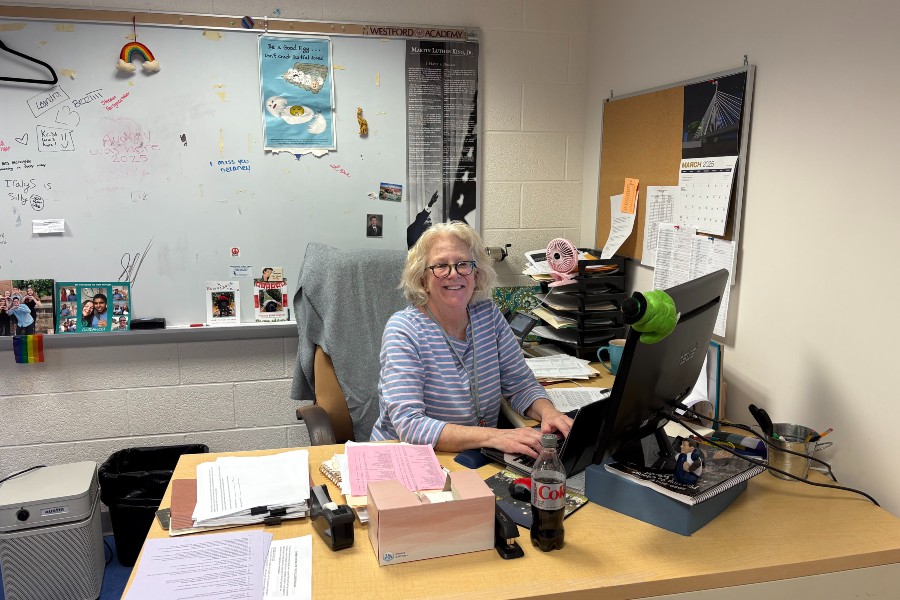By Craig Brinkerhoff and Tim Delouchrey
Copy Editor and Sports Liaison
Screaming students finally conquer their opponent and their defeated foe steps back, plastic figurine in hand. A particularly vocal player ends his friend’s play with a howl, and a girl roles the twenty-sided die one last time.
Senior Thomas Pritchard, along with confidant Matthew Ferron, are the leaders of a clan of WA students who, every Thursday, assemble for Games Club.
The club, which is primarily based around role-playing games, has become a sense of confusion for students at WA. Throughout the bell lobby and science hallway, screams of victory and cries of anguish can be heard coming from Mrs. King’s Biology room.
King, a new teacher at WA, was interested in starting a club at the school when students approached her. Ferron and a friend began to play role playing games [RPG] as a hobby, inviting Pritchard along. Pritchard knew others who too played, and soon enough they were forming a new school club.
“I offered a lot of other choices, like upcycling clothes, but I am happy to do this club,” said King.
As of now, the club focuses primarily on two role-playing games: Amber and Dungeons & Dragons. Amber is unique in the RPG universe in that it features no dice for decision making, and instead relies on simple character scores. Dungeons & Dragons is the classic example of RPG’s that any novice would now as well. However in addition to these two games, the club has begun to play a third, titled Dying Universe, built by Pritchard and his brother.
“It’s a sci-fi fantasy game based in a universe that is currently shutting down. Eventually you get around to saving it, but thats not until level thirty,” said Pritchard.
It is obvious looking around the cramped biology room that club members are passionate. Girls are screaming in the corner, and countless players are yelling for Pritchard and Ferron to stop talking to us and to help out other games. There is a supportive ambiance about the place, and both founders cited group work as a major component of the club, yet it can get rather competitive.
“My favorite part is seeing people hideously fail, but my least favorite part is when I hideously fail,” said Pritchard.
Despite this great environment, the club has its fair share of disadvantages.
“We only have an hour each week, and that is not much time. We try to get it done as efficiently as possible,” said Ferron.
Efficiency is king, and this is evident. Meetings typically consist of making new characters for new members or new games, and then subsequent meetings are entirely about playing those games out. Ferron is quick to remind that an hour is surely not enough time for most of these games. Behind Ferron’s serious demeanor is a club that can be as loud and lively as they can be economical with their time constraints.
Regardless of how the students approach their Thursday afternoons, King remains a bit removed from the clamor of kids, instead focusing on her work that needs to be graded.
“I do not know how to [play], they did come out when I was in college, so I really should know … [but] I appreciate the people,” she said.
King’s opinion on the parade of plastic figurines that enters her room once a week is apt for the club as a whole. The games have been around for years, and the WA Games Club is always looking for more members to instruct and welcome into the brawl.






